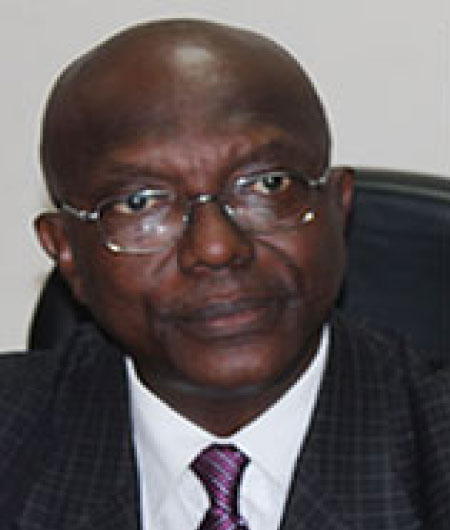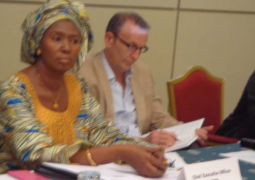
The measure of achievement of the Education for All and the Millennium Development Goals by the Year 2015 is of great concern and national interest for The Gambia, especially in the area of Education, Culture, Science and Technology, and Information and Communication, among others.
Since September 2013 and in line with the revisions made to the Education Policy grants are being provided to all public lower basic schools to ensure that no student will be charged any unauthorised levies.
As access to education continues to be a priority 10 new under-served communities will be provided with multi-grade classrooms to cater for the young children who otherwise would have to travel more than 3 kilometres to reach the nearest school.
In the 2013-2014 school year, more communities will receive customised donkey carts to enable more children to reach school. Those numbers will mean an increase on the 1,842 children who already enjoy on a daily basis the services of this innovative means of transportation.
The Revised Education Policy 2004 to 2015 emphasises the continued improvement in the quality of teaching and learning and in May 2013 The Gambia introduced the Early Grade Mathematics Assessment (EGMA) system not only to support the teaching of Mathematics in our schools but also to reinforce and supplement Early Grade Reading interventions.
The SANDWATCH Project through the ASPnet programme is just one example in which The Gambia has participated actively in UNESCO and contributing to its global database on the protection and monitoring of beaches and coastal areas. We therefore urge UNESCO to strengthen the capacities of the project to further extend the outreach and the sharing of good practices through the Ministry of Basic and Secondary Education.
For the first time in The Gambia the teaching and learning of French will be carried out using locally produced material whose content will reflect the Gambian culture and context. This giant step was made possible through collaboration with French technical assistance.
Chairperson
In addition to the Convention Concerning the Protection of the World Cultural and Natural Heritage, The Gambia has ratified the Convention on the Protection for the Safeguarding of the Intangible Cultural Heritage and the Convention on the Protection and Promotion of the Diversity of Cultural Expressions.
The inclusion on the World Heritage Listing of the Kunta Kinteh Island and Related Sites and Stone Circles of the Senegambia has been of great benefit and we express our gratitude for the continued assistance from UNESCO; the challenge now lies in the conservation of the sites, increasing the public awareness of their existence, and for their use by the local communities for their development while improving the visitors’ experience. The National Centre for Arts and Culture (NCAC) has used grants from UNESCO to review, update, and implement an integrated management plan for Kunta Kinteh Island and the related sites.
Again, we thank UNESCO for the proclamation of the symbol of the kankurang in its connection to the Manding rites of initiation still prevalent in The Gambia and Senegal, as a Masterpiece of the Oral and Intangible Heritage of Humanity (2005). UNESCO has also provided the funds to establish a centre for research and information and for the preservation of the tradition. Meanwhile, the NCAC is working on updating the 1988 Cultural Policy reflecting new plans and strategies envisaged for the period 2014 to 2018.
Chairperson
In the course of implementing the National Information and Communication Infrastructure (NICI) policy The Gambia has refined strategies for the speedy attainment (in the short and long term) of development goals fully anchored in the principles and action plan of the World Summit on the Information Society (WSIS).
The Information and Communication Act 2009 ensures the legal framework for the effective implementation of liberalisation and regulation of the ICT sector in The Gambia. The Act takes into account several information society issues such as data misuse and cyber crime. We have also realised the need to review our policy with regard to information and broadcasting. We have begun the engagement with our partners that include UNESCO to support this process which seeks to improve the media industry in our country and also to promote the development of an independent, principled and professional media regulatory body. Capacity building and funding will be crucial for the desired outcomes.
Our ICT Strategic Plan 2011-2014 landed the Africa Coast to Europe (ACE) submarine cable in The Gambia in 2012. This provides the country with high capacity modern infrastructure in telecommunication to enable various ICT services and solutions, and positions The Gambia to compete effectively in the global ICT market.
Chairperson
The review of the National Science, Technology and Innovation policy, a draft of which has been presented to the National STI Conference, reflects The Gambia’s commitment to efforts in progress in science, technology and innovation. Since 2010, UNESCO and the Government of The Gambia have worked with team spirit to study and determine the potentials for a viable Science and Technology Park at the University of The Gambia. The Gambia is grateful for this invaluable initiative and therefore urges for the continued financial and moral support that would help it grow a citizenry fully in consonance with developments in science and technology.
I wish to conclude by reiterating that The Gambia welcomes and supports the Global Education First Initiative and the International Conference on Education for the Post-2015 Education Agenda. We would like to express our support for the Six Flagship programmes identified within the Operational Strategy for Priority Africa, emphasising peace and education and the harnessing STI and knowledge for the sustainable socio-economic development of Africa.
We therefore ask UNESCO to maintain its visibility as the lead agent in the discussions defining the future of education worldwide and to improve its overall effectiveness by strengthening its role in the National Commissions.
Perhaps this is a good moment to remind all assembled here that The Gambia is that small voice with a big message for education. That is why it is bidding for a seat in the Council in the International Bureau of Education. It is your support that will make that voice heard.
I thank you.
Read Other Articles In Article (Archive)




